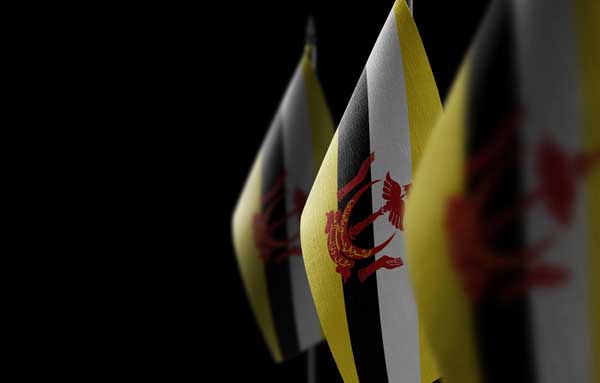Brunei is an intriguing yet little-known country in Southeast Asia that operates under a strict authoritarian regime. Located on the island of Borneo, this small sultanate has a population under 500,000 people yet is one of the wealthiest nations in the world due to its abundant oil and gas reserves.
Ruled by Sultan Hassanal Bolkiah since 1967, Brunei enforces Sharia law and centralized control over all aspects of society. But how did this tiny country become so prosperous? And what is life like under the Sultan’s absolute rule?

Oil and Gas Fuels Brunei’s Extraordinary Wealth
Brunei’s staggering per capita income of over $80,000 places it firmly among the top five richest countries globally. Yet unlike other wealthy nations, Brunei owes its fortunes almost entirely to extensive deposits of oil and natural gas fortuitously situated within its borders.
With a land area of just 2,226 square miles – smaller than Delaware – Brunei possesses proven oil reserves of 1 billion barrels. While modest compared to oil giants like Venezuela, this is more than enough to bankroll the lavish lifestyle of Sultan Bolkiah and the country’s small population for years to come.
The discovery of oil in Brunei in 1929 proved transformational. Early offshore drilling operations were conducted in partnership with Royal Dutch Shell, a relationship that continues today. By 1984, ballooning oil revenues also financed Brunei’s full independence from Britain after almost a century of colonial rule.
With all profits from hydrocarbons accruing directly to the Sultan, Hassanal Bolkiah boasts an estimated personal fortune exceeding $30 billion. He resides in the world’s largest palace – a gold-plated, diamond-encrusted edifice with 1,788 rooms and a $1.4 billion price tag.
Meanwhile, the Sultan’s subjects enjoy an array of free benefits including healthcare, education, zero income taxes for businesses, and highly subsidized necessities like gasoline and rice.
An Authoritarian State Ruled by Sharia Law
Sultan Bolkiah wields absolute power in Brunei, with each pronouncement carrying the weight of law. Political parties are banned and any organized dissent against his rule is swiftly crushed.
In 2019, Bolkiah implemented Sharia law across Brunei, introducing corporal punishments like amputations and stoning for offenses like theft and adultery. This controversial move triggered international condemnation and boycotts, although the decrees have yet to be enforced.
With very few venues for public entertainment, Bruneians lead regimented lifestyles in this conservative Islamic nation. Sale of alcohol is completely prohibited while access to uncensored media from abroad is restricted. Blasphemy and insulting any aspect of the Sultan or royal family are considered serious crimes.
Crime rates nevertheless remain extremely low in Brunei, which proudly brands itself the “Abode of Peace.” The populace seems willing to accept strict social controls and lack of political rights in return for stability and prosperity. With basic necessities provided by the state, most people focus on living peaceful lives without complaining about their leader’s lavish existence.
The Capital City Bandar Seri Begawan
Nearly three-quarters of Bruneians reside in Bandar Seri Begawan, the country’s exceptionally clean capital. Here visitors can view the Sultan’s enormous 1,800-room palace – open to the public for three days annually during Ramadan –along with luxury hotels, upscale shops, and the magnificent Sultan Omar Ali Saifuddien Mosque.
With its orderly streets, gleaming high-rises, ubiquitous use of Malay, and signs in Arabic, Bandar Seri Begawan brings to mind a prosperous Middle Eastern petro-state like Dubai or Qatar. Groups of wealthy Arab tourists are drawn to Brunei’s Muslim culture and ultra-luxurious hotels like the Empire Hotel and Spa, considered one of the world’s most expensive lodgings.
Life in Rural Brunei
Outside the capital, Brunei remains largely rural and forested. Residents in remote areas inhabit “water villages” – neighborhoods constructed on stilts over rivers and marshes. This provides easy access to fishing while reflecting traditional lifestyles in a nation with few large villages let alone bustling cities beyond Bandar Seri Begawan.
Bruneians outside the capital may lack extravagant palaces yet receive the same government-provided benefits like healthcare and education as urban dwellers. Every corner of Brunei features a mosque, enabling citizens across the Sultanate to easily practice their Islamic faith which lies at the heart of public life.
The Road Ahead for Brunei
Looking ahead, Brunei seems poised to continue its authoritarian governance model for the foreseeable future. Sultan Bolkiah remains strongly entrenched with no hint of opposition. And while oil output is declining, revenues still appear adequate to finance current state expenditures for at least several more decades.
Yet in an era where most nations are embracing increasing openness, Brunei remains determined to chart its own course. Only time will tell whether this prosperous but isolated Sultanate ruled by absolute monarchy can sustain public order and retain its surprising spot among the world’s richest countries.
